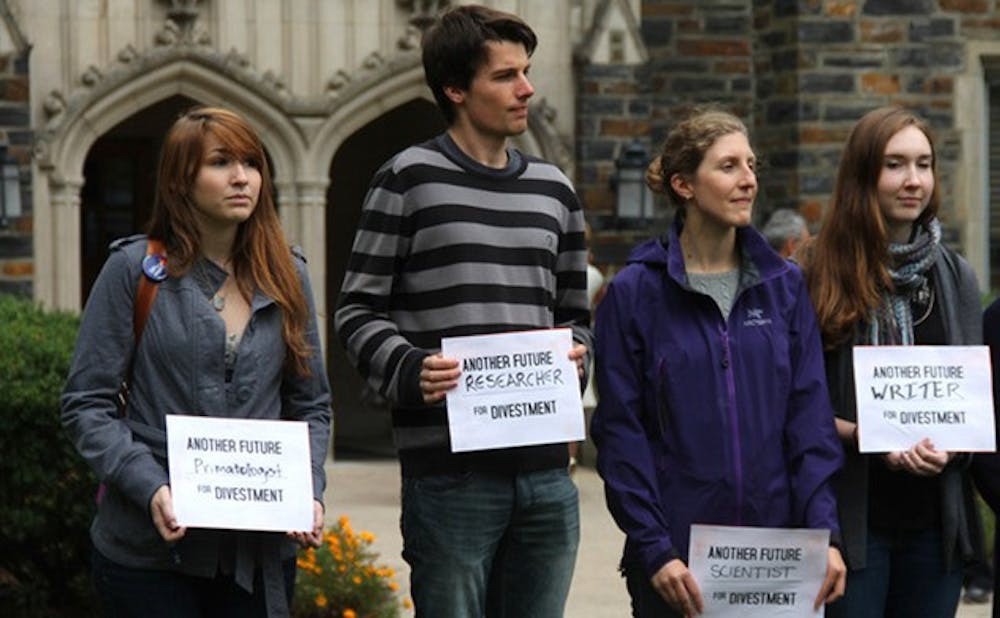Duke and Durham activists challenged students to assess the state of campus movements at a panel discussion Thursday evening.
The event—titled "What Is Wrong With Duke’s Activist Culture?"—drew an audience of approximately 50 students, who discussed the challenges that come with creating change in the Duke and Durham communities. Three panelists led the conversation, sharing their personal experiences organizing activist campaigns to motivate current students to go beyond what has been done in the past.
“You should realize that you stand on the shoulders of many others working on Duke activism in an environment that still feels frustrating I’m sure,” said Ron Grunwald, Trinity ’80, director of the Undergraduate Research Support Office and a leader in the campaign that allowed Duke to divest from from firms associated with South Africa during the apartheid era.
The other two panelists were Ivan Parra, lead organizer of Durham Congregations, Associations and Neighborhoods, and junior Suhani Jalota, a student activist and social entrepreneur. Durham CAN works on several local activist projects, including the living wage campaign that won salary increases and healthcare benefits for low-wage Duke workers. Jalota is currently working to create a startup that works with impoverished women in India to improve sanitation.
All three panelists saw potential for making the University's activist community more vibrant, especially Parra, who cited his organization's living-wage campaign.
“I have seen good work going on at Duke,” he said.
Although Grunwald—who was part of the divestment from firms associated with South Africa during his time as a Duke undergraduate in the late 1970s—noted that activism was at its core based on the efforts of a few dedicated people, he too sees potential for future campaigns.
“We have now at Duke an administration that is willing to spin progressive actions to their benefit,” he said.
Trying to get as many people as possible involved in campaigns, including graduate students and faculty, was the emphasis for student leaders in attendance.
“As with any movement, students are really the key to putting the pressure on the powers that be to pushing [change] through,” said sophomore Zoe Willingham, who is involved with the United Students Against Sweatshops organization.
Some students were inspired simply by the turnout for the event, which was organized by Divest Duke but featured a number of other groups dedicated to activism.
“It’s very important to see how much potential we have moving forward,” said freshman Sydney Smith, a member of Divest Duke. “I get the feeling that there are a lot of students who care about activism.”
Upcoming opportunities for student involvement with activist efforts noted at the panel include a Fight for Fifteen event for increasing the minimum wage at Shaw University April 15 and a training session run by Parra’s organization April 18 at the Sanford School of Public Policy.
Get The Chronicle straight to your inbox
Signup for our weekly newsletter. Cancel at any time.
Adam Beyer is a senior public policy major and is The Chronicle's Digital Strategy Team director.

